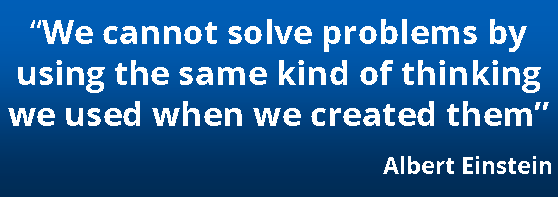 May 2019
May 2019
Condo corporations have tax, spend and rule creating authority similar to government. As with elected politicians, condo directors as a group decide how much you pay in fees, how these funds are spent and what rules apply to your home. They can borrow money on your behalf.
Individuals purchasing in a condo building do so for two reasons. Some choose to reside in a condo suite as their home. Investment-minded individuals purchase intent on making money through renting their property or its appreciation over time. Individuals intent on renting a property presume others will want to reside in the building partially because of how it is managed and choices made by condo directors.
Condo communities exist within a much larger community. They, and their buildings, thrive when others want to reside in the community and purchase suites in the building. All condo communities compete to attract those interested in purchasing a condo property. When individuals decide that a community has made poor choices, it detracts from the value of resales and makes it harder to attract desirable owners.
Condo communities that wish to increase the value of their property and attract the best residents do so in a broader environment beyond its control. Success requires understanding this environment and its trends.
 Overview
Overview
Canadian society is rife with societal choices that are manifest in condo living. These choices, or trends, affect the quality of decision making and stability of condo communities.
If a condo corporation budget has been mismanaged or the corporation is in debt and sliding into bankruptcy, all decisions have been with the acceptance of condo owners who elect the decision makers.
In practice, many households have abandoned clear thinking and long-term economic planning which impacts on the management of their condo corporation. Individuals may have supported reducing condo fees or curtailing expenses for personal short-term financial gain, most often a few extra dollars in their own pocket, without consideration of long-term consequences. It should not be surprising when these condo owners elect leaders with a similar mindset.
Affluence leads to Poorer Decisions
Affluence has made many of us irrational in our household decisions. Many condo corporations have likewise become irrational in decisions affecting their condo homes.
We live in a society where most no longer struggle for basic needs – food, shelter and clothing. Many now focus on “wants” rather than “needs”. We want nice homes, luxurious and extensive amenities, and electronic devices of all types for entertainment and communication. The economic term for this, “conspicuous consumption“, describes when people buy to enjoy or show off their wealth rather than purchase for their “needs“.
 Home Economics
Home Economics
Housing is one of the more costly forms of consumption. Many will pay much for reasons other than the home. They may desire the area, its conveniences or people in the area. It explains why many pay more for homes than they can afford. It culminates with people working to pay for showing off rather than what they actually require.
This is a continuation of trends that have existed since the 1960s where people spend to show off wealth, status or sexual appeal. Saving provides no immediate benefit so is avoided. This is comparable to condo corporations that choose not to build their reserve fund, thus preferring to fall back on special assessments or higher condo fees when short of funds.
The social safety net that provides financial protections against illness and job loss extends into the condo community when monthly condo fees are expected to pay for all sorts of things not accounted for when those fees were established.
Many choose to consume their “wants” rather than save for the future. They want to keep up with the Jonses across the hall, or those they see on their TV or electronic screen. Condo corporations that choose not to save for the future – by not fully funding their reserve fund – can expect to pay for this further down the road.
Condo corporations choosing to indulge self-interest by buying without first saving put the community at risk. This leads to a brief period of satisfaction followed by long-term unhappiness as condo owners and corporations struggle to repay debt from purchasing what is unaffordable.
Communication
Our willingness to purchase “wants” rather than “needs” is powered by marketing conveyed through our communications. In the 1920s we relied on newspapers and word of mouth. In the 1940s we began relying on television which experienced the fastest rate of adoption of all major technologies. In 1950 9 percent of all households had a television. By 1960 this had increased to 87 percent and Canadians were estimated to spend three to four hours a day in front of the television.
Today we live in the broadband age where many communication vehicles are connected and internet-connected devices are always on. It is not uncommon for many to spend more than eight hours of our day in front of the television or internet-connected devices.
As more choose to live in Toronto, high-rise living becomes the only viable option for housing so many people. At the same time, our electronic screens and devices allow us to spend more time at home becoming more dependent on them.
Condo communities must navigate these newer communication channels if they wish to remain in contact with their residents.
Insulated from Life
Cocooning, staying inside one’s home, is growing. We spend less time reading, walking, volunteering or interacting with people. People have migrated from interacting with the community to spending more time in their homes in front of the household or personal electronic screens – television, computer, tablet or smartphone – and less time interacting with family members.

Loss of Basic Skills = Poorer Quality Decisions
Internet-connected devices have created what some describe as fragmented public squares. Generally self-contained groups, organized on the internet around shared beliefs, have resulted in more aggression and less trust in those outside each group. Within these groups individuals treat beliefs as facts, and make decisions regardless of fact.
We read less and scan more. We have less concentration and reduced desire for factual detail. We retrieve facts faster but retain them for less time. Reading for enjoyment has been on the decline for more than a decade. There is less awareness of “basic facts”. Reading proficiency has declined.
A reduction in basic shared factual knowledge, an insulated mindset and little awareness of history result in poorer quality decisions and more poor choices. Condo owners know basic facts but struggle with specifics. The lack of basic knowledge makes it hard to understand condo budgets and details necessary to make informed decisions.
As more time is spent viewing electronic devices, research shows that trust in others has decreased and a growing perception that corruption has increased. This same research suggests viewing habits are bad for mental and physical health, and comparable to addictive habits. Increased electronic viewing habits correlate with increased obesity and poor diets. Excessive viewing and overeating are forms of loss of control not unlike other addictions.
Political considerations affect those we elect as directors for condo corporations. Low condo fees takes on increasing importance much like lower taxes. Less important is how these lower fees affect our home.
Many have become blind to facts and reality when choosing their condo community leaders.
At the end of the day, while some complain about condominium management and directors that make decisions in a condo community, directors are elected by condo owners. Those dissatisfied with condo management have no one to blame but themselves.




